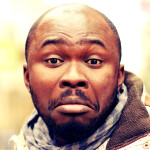‘Dutch should remain primary language’
A valid case must be made in order to justify why an academic programme should be taught in English, the minister says in an interview with NOS Radio 1. ‘It cannot be an aim unto itself.’
Bussemaker made the comments in response to Avans university of applied sciences’ plans not to award diplomas to students if their English skills are insufficient.
Whether an academic programme should be offered in English depends on the individual study programme or the institution where it is taught, the minister says. ‘But I am responsible for the big picture in the Netherlands, and I am eager to discuss it further with the institutions.’
Research
English in higher education is undeniable important because many students are being trained to work in an international job market, according to the minister.
Bussemaker has asked the Dutch Academy of Sciences (Nederlandse Akademie voor Wetenschappen (KNAW)) to conduct research into the positive and negative effects of ‘excessive Anglicisation (verengelsing) of higher education.’
In December, the minister addressed the Lower House about the increasing Anglicisation, or Englishing, of higher education. At the time, she said that it was not appropriate to choose English over Dutch only for the sake of attracting foreign students. ‘English cannot be implemented at the expense of the quality of education. Lectures must be given in fluent English. If the language comes at the expense of nuance and how in-depth discussion of the course materials can be, then it would be best to leave it be.’
English required
Two years ago, the RUG established a new language policy: all students and staff would be required to speak English and Dutch would be encouraged. With the new language policy, the university hopes to attract more students from abroad.
English is supposed to become mandatory in 2018, but whether or not that will actually come to pass is uncertain. ‘We are working very hard on the implementation of the language policy’, RUG spokesperson Gernant Deekens says.
According to him, the minister’s remarks about Englishing are in keeping with the university’s own policies. ‘The Board views the university as an international institution which was founded and remains located and rooted in the Netherlands. As such, Dutch should always be the primary language. Because of the international nature of research and education at the RUG, it was decided that English should be the second primary language in the interest of doing justice to the increasingly diverse population here at the university. The minister calling for Dutch to remain the primary language is in line with the RUG’s own guidelines.’






